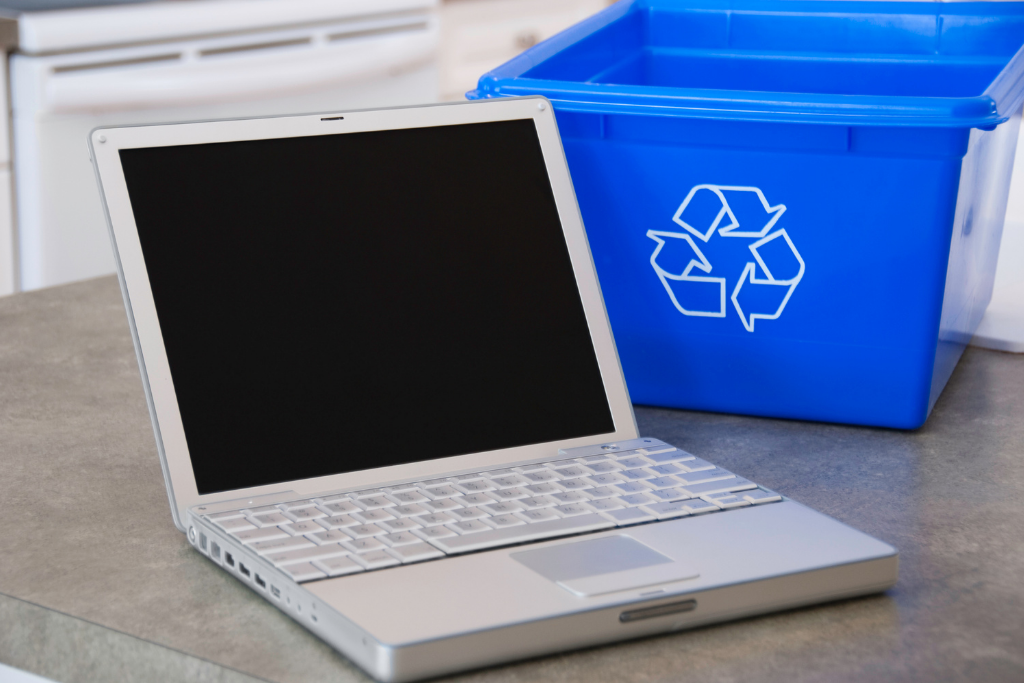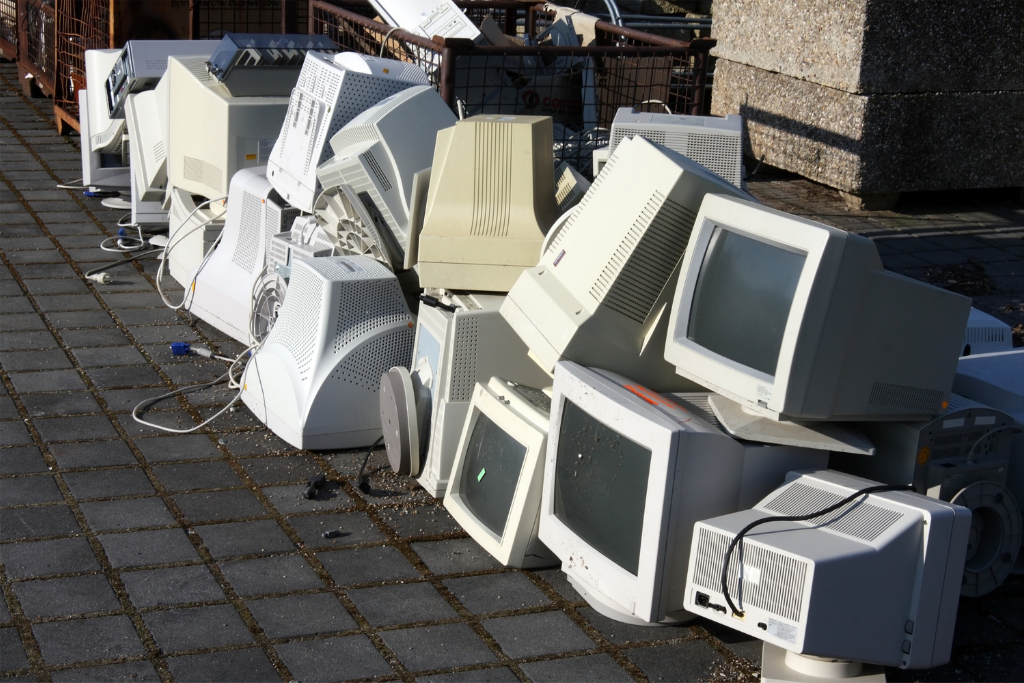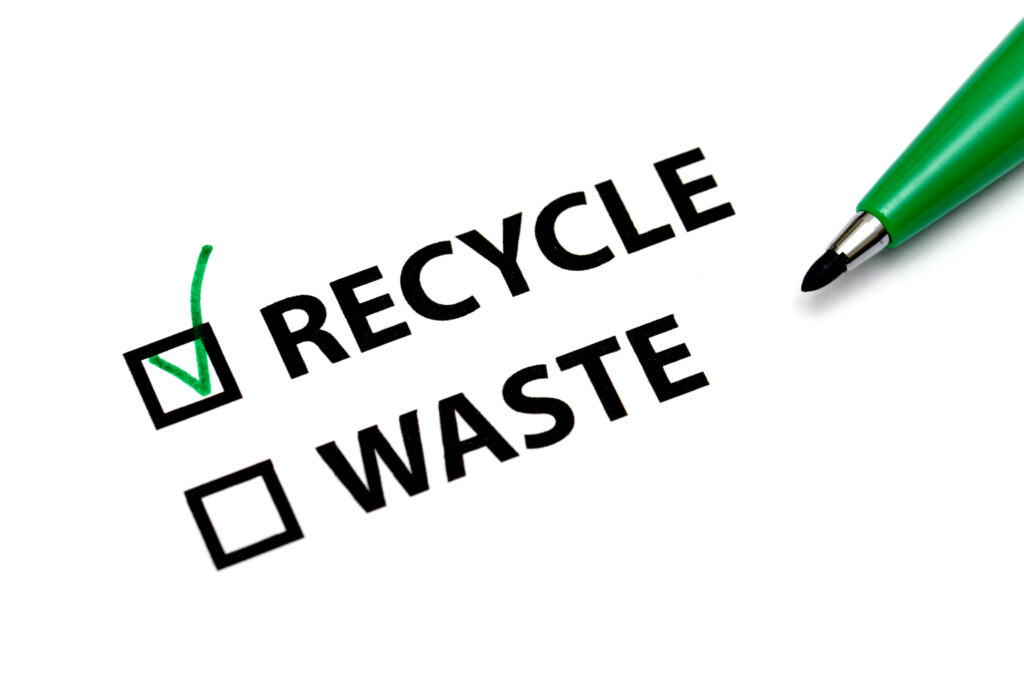Key Takeaways
– Walmart offers a comprehensive electronics recycling program that allows customers to dispose of their old devices responsibly.
– Mobile devices, computers, printers, TVs, audio equipment, and rechargeable batteries are among the many types of electronics that can be recycled at Walmart.
– Remember to check with your local Walmart store for specific instructions and acceptance criteria for electronic recycling.
– Walmart partners with environmental organizations to raise awareness about electronics recycling.
– These partnerships provide educational resources, conduct awareness campaigns, and organize events.
– By collaborating with these organizations, Walmart fosters a sense of community engagement.
What Types of Electronics Can You Recycle at Walmart?
Regarding electronic recycling, Walmart offers a wide range of options for customers to dispose of their old devices responsibly. From small gadgets to larger appliances, you can find a variety of electronics that can be recycled at Walmart’s designated collection points. Here are some key categories of electronics that you can recycle at Walmart:
#### 1. Mobile Devices
Smartphones, tablets, and other mobile devices are commonly recycled at Walmart. Whether you have an outdated phone or a broken tablet, these can be dropped off at Walmart’s recycling kiosks for proper disposal.
#### 2. Computers and Laptops
If you have an old computer or laptop you no longer use, Walmart allows you to recycle these devices. This includes desktop computers, laptops, monitors, keyboards, and mice.
#### 3. Printers and Scanners
Printers, scanners, and accompanying accessories such as ink cartridges, can also be recycled at Walmart. Recycling these devices can help reduce electronic waste and its environmental impact.
#### 4. TVs and Audio Equipment
Walmart’s electronics recycling program also accepts televisions, sound systems, and other audio equipment. Make sure to check with your local Walmart store for any specific instructions on how to recycle these larger electronic items.
#### 5. Rechargeable Batteries
In addition to electronic devices, Walmart’s recycling program also allows for the recycling of rechargeable batteries. These batteries are commonly found in smartphones, laptops, and other portable electronic devices.
Remember, this is not an exhaustive list, but it gives you an idea of the electronics that can be recycled at Walmart. It’s important to note that specific acceptance criteria may vary by location, so it’s always a good idea to check with your local Walmart store for detailed information on what electronics they accept for recycling.
Step-by-Step Guide: How to Recycle Electronics at Walmart
Electronics recycling is an important step towards reducing waste and conserving valuable resources. As a sustainability leader, Walmart offers a convenient and efficient electronics recycling program at select locations across the country. Whether upgrading your smartphone or disposing of an old computer, following these simple steps will ensure your electronics are recycled properly.
## 1. Check if Your Local Walmart Offers Electronics Recycling
Before heading to your nearest Walmart, confirming if they have an electronics recycling program in place is essential. Walmart has partnered with certified recycling facilities to provide this service, but not all stores may participate. You can easily check their website or call the customer service helpline to find out if your local store accepts electronics for recycling.
## 2. Prepare Your Electronics for Recycling
To ensure a smooth recycling process, removing personal data or sensitive information from your devices is advisable. Back up important files, clean your devices and restore them to factory settings. Also, separate loose accessories, such as chargers or cables, as they may require separate disposal or recycling methods.
Now that you’re prepared let’s move on to the next step.

Walmart’s Electronics Recycling Process: Ensuring Proper Disposal and Resource Recovery
Electronic waste, or e-waste, has become a significant environmental concern. With the rapid advancement of technology and shorter product lifecycles, more and more electronic devices are being discarded, leading to a growing accumulation of hazardous materials in landfills. Understanding the need for responsible e-waste management, Walmart has implemented an Electronics Recycling Process to ensure proper disposal and resource recovery.
### Collection and Sorting
Walmart has partnered with certified recycling companies to establish collection points where customers can conveniently drop unwanted electronics. These drop-off locations are available in select Walmart stores, making the recycling process accessible and hassle-free for customers. Once the electronics are collected, they are carefully sorted to segregate different types of devices for efficient processing.
### Responsible Recycling
Walmart ensures that all electronics received through its recycling program are handled with utmost care to minimize environmental impact. The recycling partners follow strict guidelines and industry best practices to dismantle and recycle the devices. Hazardous components, such as batteries and mercury-containing materials, are safely extracted and disposed of, while valuable metals and other reusable materials are recovered through advanced recycling techniques.
By implementing such a robust Electronics Recycling Process, Walmart aims to promote sustainability, reduce electronic waste, and recover valuable resources. Through its partnership with certified recycling companies, Walmart has created a convenient solution for customers to responsibly dispose of their unwanted electronics, contributing to a cleaner and greener future.
Recycling vs. Donating Electronics: Which Option is Right for You?
You may be torn between recycling and donating when disposing of your old electronics. Both options have their merits, but determining which is right depends on various factors. Here, we break down the pros and cons of recycling versus donating electronics, helping you make an informed decision.
### Recycling Electronics: Protecting the Environment
One of the key benefits of recycling electronics is its positive impact on the environment. Electronic devices often contain hazardous materials, such as lead, mercury, and cadmium, which can be harmful if released into the environment. Recycling ensures that these materials are safely disposed of or recovered for reuse, reducing the risk of pollution and conserving valuable resources.
On the other hand, recycling electronics may require some effort. You’ll need to find a recycling facility or program that accepts electronic devices, ensuring they engage in responsible recycling practices. Additionally, you’ll need to properly prepare your devices for recycling by removing personal data and any potentially hazardous components.
### Donating Electronics: Extending the Lifespan
Donating your old electronics to organizations and individuals in need can be a great way to give back to the community. Donating allows someone else to use and benefit from the device, extending its lifespan and reducing the demand for new electronics. This helps the individual receiving the donation and promotes a more sustainable consumption pattern.
However, it’s important to consider the condition of your electronics before donating. While some organizations accept devices in any condition, others may only take electronics in good working order. Donating broken or outdated devices may not be as helpful and could burden the organization with recycling or disposing of them properly.
So, which option is right for you? Ultimately, it depends on your priorities and circumstances. If you prioritize environmental sustainability and responsible disposal of hazardous materials, recycling may be preferred. On the other hand, if you want to extend your devices’ lifespan and positively impact your community, donating could be the way to go.
• Recycling electronics helps protect the environment by safely disposing of hazardous materials and conserving resources.
• Finding a recycling facility or program that engages in responsible recycling practices may require effort.
• Properly preparing your devices for recycling, such as removing personal data and hazardous components, is necessary.
• Donating electronics allows someone else to benefit from the device and extends its lifespan.
• It reduces the demand for new electronics and promotes sustainable consumption patterns.
• Consider the condition of your electronics before donating, as some organizations may only accept devices in good working order.
• Donating broken or outdated devices may burden the organization with responsibility for proper disposal or recycling.

Walmart’s Efforts to Promote Customer Awareness and Participation in Electronics Recycling
In today’s world, where the impact of electronic waste on the environment is a growing concern, Walmart is taking an active role in promoting customer awareness and participation in electronics recycling. As a leading retailer, Walmart recognizes its responsibility to drive positive change and sustainable practices. With its extensive reach and customer base, Walmart has implemented various initiatives to educate and engage customers in the importance of recycling electronics.
### Partnering with Environmental Organizations
One key strategy that Walmart has embraced is partnering with reputable environmental organizations to raise awareness about electronics recycling. These partnerships aim to leverage the expertise of these organizations and create innovative recycling programs that make it convenient and accessible for customers. Together, Walmart and these organizations provide educational resources, conduct awareness campaigns, and organize events to encourage customers to dispose of their electronic devices responsibly.
Through these partnerships, Walmart promotes environmental stewardship and fosters a sense of community engagement. By showcasing the positive impact of recycling electronics, customers are encouraged to participate in these initiatives. Walmart continues to explore new avenues for collaboration, ensuring that its efforts to promote customer awareness and participation in electronics recycling remain an ongoing priority.
Now that we have explored Walmart’s efforts to promote customer awareness and participation in electronics recycling let’s dive deeper into the specific measures that Walmart has implemented. In the next section, we will discuss the various channels through which Walmart educates and engages its customers in electronic recycling.
Environmental Benefits of Recycling Electronics at Walmart
Electronic waste, or e-waste, has become a growing concern today. As technology continues to advance at a rapid pace, more and more electronic devices are being discarded and ending up in landfills. However, Walmart’s Electronics Recycling program offers a sustainable solution for disposing of these devices responsibly.
By recycling your electronics at Walmart, you are not only helping to protect the environment, but you are also contributing to the conservation of valuable resources. Many electronic devices contain components that can be recycled and reused, such as precious metals like gold, silver, and copper. Extracting these materials from recycled electronics reduces the need for mining and extracting raw materials, resulting in a decreased environmental impact.
Through Walmart’s recycling program, these valuable materials are recovered and put back into circulation, reducing the demand for new resources and the associated environmental impact. Additionally, recycling electronics helps prevent hazardous substances found in these devices, such as lead, mercury, and cadmium, from ending up in landfills and potentially contaminating soil and water sources.
### 1. Reduction in E-Waste in Landfills
When electronic devices are improperly disposed of, they often end up in landfills, where they can release harmful toxins into the environment. By recycling your electronics at Walmart, you divert them from landfills and ensure they are properly disposed of or recycled.
### 2. Conservation of Natural Resources
Electronics recycling allows for the recovery and reuse of valuable resources like metals, plastics, and glass. By participating in Walmart’s program, you contribute to conserving these resources and reducing the need for virgin materials, which helps to alleviate the strain on natural resources.
### 3. Prevention of Pollution
Electronic devices contain hazardous substances that, if not properly managed, can pollute the air, water, and soil. By recycling your electronics at Walmart, you are helping to prevent the release of these harmful pollutants and protecting both human health and the environment.
### 4. Energy Savings
The electronics recycling process requires less energy than the extraction and production of raw materials. Recycling at Walmart reduces the demand for energy-intensive processes, ultimately contributing to energy savings and reducing greenhouse gas emissions.
